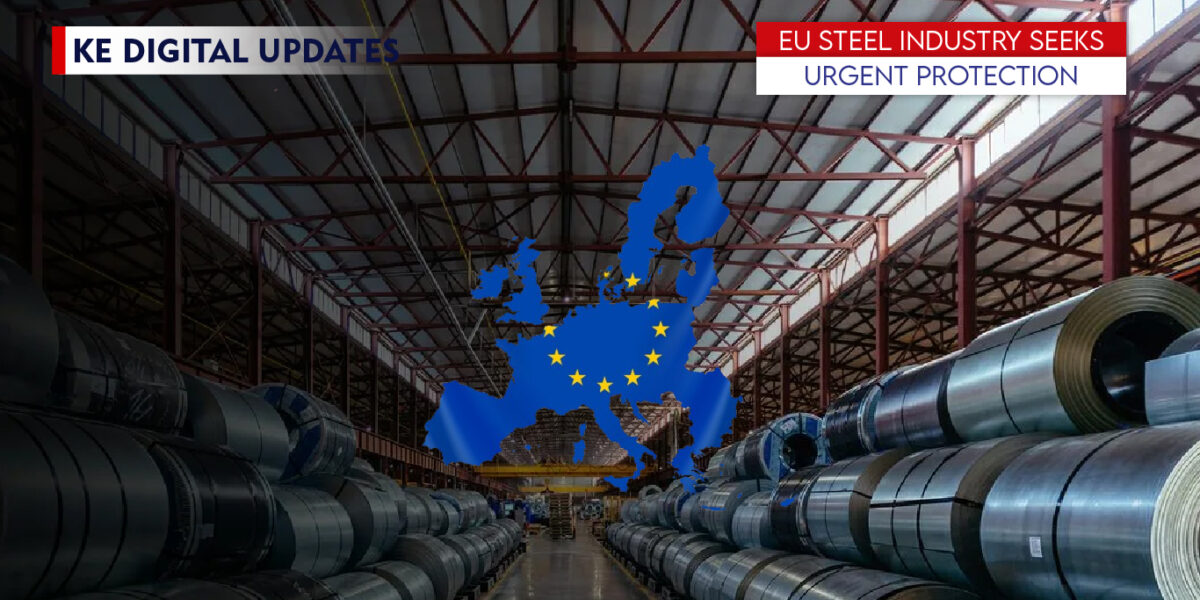Published on Nov 13, 2024
The European steel industry is currently facing a multitude of challenges that threaten its stability and sustainability. Recognizing the gravity of the situation, the European Steel Association (EUROFER) and IndustriAll Europe, the trade union federation, have called for an urgent and comprehensive EU Steel Action Plan. They emphasize that this plan must be introduced within the first 100 days of the new European Commission to address the immediate and long-term needs of the industry.
The Urgent Need for an EU Steel Action Plan
EUROFER and IndustriAll Europe stress the importance of implementing an EU Steel Action Plan to restore the industry’s competitiveness, protect the environment, and safeguard jobs. The steel sector is grappling with production cuts, plant closures, and bankruptcies across Europe. These issues have been exacerbated by high energy costs, the influx of cheap imports, and global steel overcapacity.
Key Objectives of the Action Plan
The proposed action plan is designed to tackle several critical areas:
1. Restoring Competitiveness:
The plan aims to help the European steel industry regain its competitive edge in the global market. This involves measures to address unfair trade practices and combat the global overcapacity that is depressing steel prices and harming European producers.
2. Environmental Protection:
Decarbonization is a key focus of the action plan. The transition to greener technologies must be managed in a way that does not lead to deindustrialization. This includes protecting the market from cheap, high-carbon steel imports undermining EU environmental standards.
3. Job Protection:
Safeguarding jobs in the steel industry is another critical aspect of the plan. The industry is a significant employer of highly skilled workers, and protecting these jobs is essential for maintaining the social and economic fabric of the EU.
Challenges Facing the European Steel Industry
High Energy Costs:
One of the most pressing issues for European steelmakers is the high energy cost. EU steel producers face energy costs that are two to three times higher than those of their main competitors in the US and China. This disparity puts EU steelmakers at a significant disadvantage and makes it difficult to compete globally.
Cheap Imports:
The influx of cheap steel imports from countries with lower production costs and less stringent environmental regulations poses a significant threat to the EU steel industry. These imports erode the market share of European producers and drive down prices, making it difficult for them to maintain profitability.
Global Overcapacity:
The global steel market is experiencing overcapacity, with production far exceeding demand. This has led to increased competition and a race to the bottom on prices. Addressing global overcapacity requires coordinated international efforts to ensure a level playing field for all producers.
The Role of the European Commission
The European Commission plays a pivotal role in addressing these challenges. The new Commission, under the leadership of Stephane Sejourne as the Executive Vice President for Prosperity and Industrial Strategy, is tasked with formulating and implementing the EU Steel Action Plan. EUROFER and IndustriAll Europe insist that this plan must be robust and timely, emphasizing the need for publication within the first 100 days of the new Commission’s tenure.
International Cooperation
In addition to internal measures, EUROFER and IndustriAll Europe call for continued cooperation between the EU and the US to address global challenges such as overcapacity and unfair trade practices. This transatlantic partnership is crucial for creating a level playing field and ensuring the sustainability of the steel industry in both regions.
Conclusion
The European steel industry is at a critical juncture, facing significant challenges that require immediate and decisive action. The proposed EU Steel Action Plan aims to restore competitiveness, protect the environment, and safeguard jobs. High energy costs, cheap imports, and global overcapacity are key issues that the plan seeks to address. By implementing this plan within the first 100 days of the new European Commission and fostering international cooperation, particularly with the US, the EU can ensure a stable and sustainable future for its steel industry.


